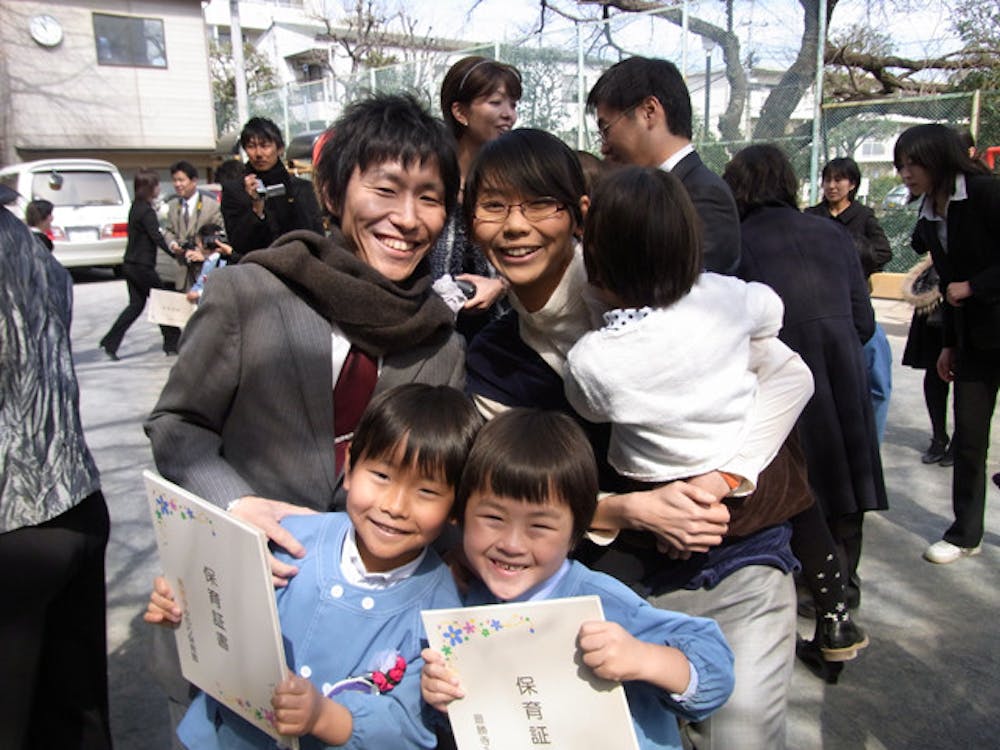Shinichi Amano was napping with his 3-year-old daughter in his Tokyo apartment when the shaking woke him.
He wasn’t alarmed at first. In Japan, earthquakes are a regular occurrence.
“I thought it was just a normal earthquake. It usually stops after a couple seconds or 10 seconds,” he said. “But it didn’t stop.”
As the shaking continued, Amano realized this wasn’t the typical quaking he was accustomed to.
He woke his daughter, Akari, who was sleeping beside him on his bed. He covered her body with his, throwing a blanket over his own body as an extra layer of protection.
A few dishes fell to the floor. Then the shaking stopped.
Amano, a Ph.D. candidate at UF studying health and human performance, had arrived in Japan on March 8 to visit his wife, Nobuko, and children during Spring Break.
He had just been picnicking with his daughter and the kids at her day care that Friday morning before they returned to their apartment around noon to grab a few hours’ sleep.
There was no damage to Amano’s apartment, which was in an area of Tokyo that wasn’t hit hard by the 8.9-magnitude earthquake.
He assumed the same was true for the rest of Tokyo but checked the news and saw devastation in other areas of Japan.
He walked over to pick up his 6-year-old son, Wataru, at his day care. Wataru and the other children were OK.
Afterward, he called his wife, a landscape architect who was working at her office when the earthquake happened.
Tokyo was one of the cities farthest from the earthquake’s origination point at a distance of 234 miles, according to the U.S. Geological Survey website.
But many areas of Tokyo were still thrown into confusion as public transportation systems shut down and people assessed the damages from the earthquake. His wife, who normally takes a train between her office and her family’s apartment an hour away, found herself unable to take her usual route home.
Upset by the earthquake, she borrowed a colleague’s bicycle and rode it back to their apartment since the train and bus systems weren’t running. It took her more than two hours to reach home.
Amano returned to UF on Monday but is maintaining close contact with his family. Concerns about radiation poisoning from the nuclear power plants within Tokyo led his wife to move with the children to her mother’s home in northwestern Tokyo until the crisis calms down.
Given the immense damage done by the earthquake and tsunamis, he knows it will take time for Japan to recover.
“We are well-prepared for the earthquake because we have so many earthquakes in Japan (but) this earthquake was beyond our expectations,” he said. “This earthquake is much more damaging than we expected.”






